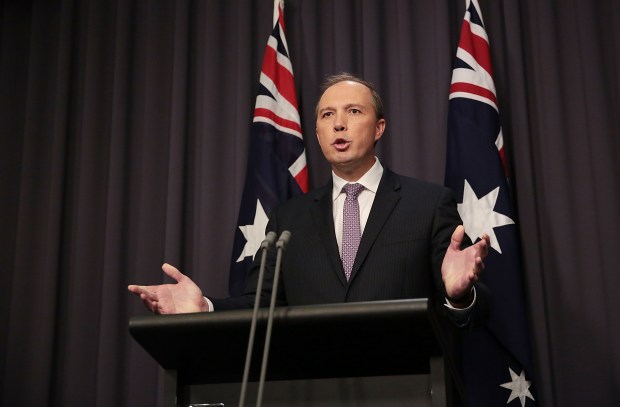Cramming recently into a freezing New York Jets game, I was surprised to learn that, despite the National Football League (NFL) being a $US 3 billion industry, the job of an NFL umpire is only part-time. The pay can be good, and most umpires aren’t going hungry. But the gig, and the associated glitz and glamour of packed stadiums, serves for many umpires in between their lives as teachers and even dairy farmers.
Our natural impulse here is to decry the situation – football players on multimillion-dollar packages – as its officials are reduced to meagre common servitudes of having a part-time job.
Yet there’s an important leadership lesson here. The umpires who want the role are in the seat – a ‘love of the game’. They’re not compromised by remuneration. And, unlike any referee in any professional Australian code, they aren’t building public profiles, elevating their importance, or thrusting their heads into every moment of the game.
I sense this observation goes beyond sports. While we fixate this year on the Voice, the debate over a republic will be more important in terms of ‘leadership’ and the integrity of our constitutional monarchy. A President will be political. A Governor-General is not.
Indeed, a President will rub up against the Governor-General’s century-plus role as the sparing train conductor, above politics, and keeping things running on time. An Australian President, by contrast, may be motivated by inducements of public adulation, especially by the republicans’ proposed ‘Australian XI’ model, vying for political selection and propelled by popular causes and favours. Best to keep the position, and our system, uncompromised.
Speaking of presidents, America’s 45th, and even the next presidential election, isn’t on the minds of many everyday Americans.
I know this because I used the PJ O’Rourke approach.
Back in the late 1980s, as he roamed the planet, the late great O’Rourke observed: ‘Taxi drivers all over the world … are under Newspaper Guild contract to give easy quotes to foreign correspondents.’
While Twitter has subsumed that role for many journos, and I’m certainly not a journo myself, I updated the great PJO’s barometer while travelling through New York, Washington DC, Virginia, Louisiana, Virginia, Texas, and Los Angeles and listening, among many others, to everyone from hot dog vendors, Ivy Leaguers and cleaners to Lyft drivers, police officers, and government employees. From these exchanges, it’s clear no one is thinking about presidential politics, nor the recent election of the House Speaker.
Yet commentators remain deeply focused on the topic. The GOP, most observe, is not in a good space. Trump defied huge odds to win 2016. Yet Republicans lost the House in 2018, then of course the White House and the Senate in 2020, let alone the recent mid-term disappointments. Even Speaker selection is fragmenting and quarrelsome.
If Trump indeed receives the GOP nomination, one can’t help but think that a 2024 version of a 1992 Ross Perot – where the independent oilman soaked up 20 per cent of the Presidential vote, many from Bush 41 – could emerge in the form of Liz Cheney. Say Cheney – or someone centre-right – runs as an independent, how many votes can they – like Perot – take away from Trump in the main race?
The late New York cultural critic Neil Postman (1981-2003), who wrote 17 books and observed the warped nature of technology on human conduct – how we were literally Amusing Ourselves to Death – said that he was nonetheless an optimist.
This, Postman said, was because, ‘…it might just be possible for people to learn how to recognize empty, false, self-serving, or inhumane language, and therefore to protect themselves from at least some of its spiritually debasing consequences.’
Postman said this in 1992. And I suspect he’d be stunned by a top American university’s recent decision to eliminate everyday terms that cause harm. Two examples.
First is ‘to take a stab’ or ‘give it your best shot’, removed because: ‘These represent the unnecessary use of the imagery of hurting someone or something’ suggesting instead to, ‘use “give it a go” or “try”.’ Another is to ‘crack the whip’, also removed for an ‘unnecessary use of violent imagery that paints a person being referred to as authoritarian or oppressive. Use “work hard(er)”’.
I suspect Postman’s optimism will be encouraged by Spectator Australia readers’ reactions.
Sean Jacobs writes at www.seanjacobs.com.au.

























